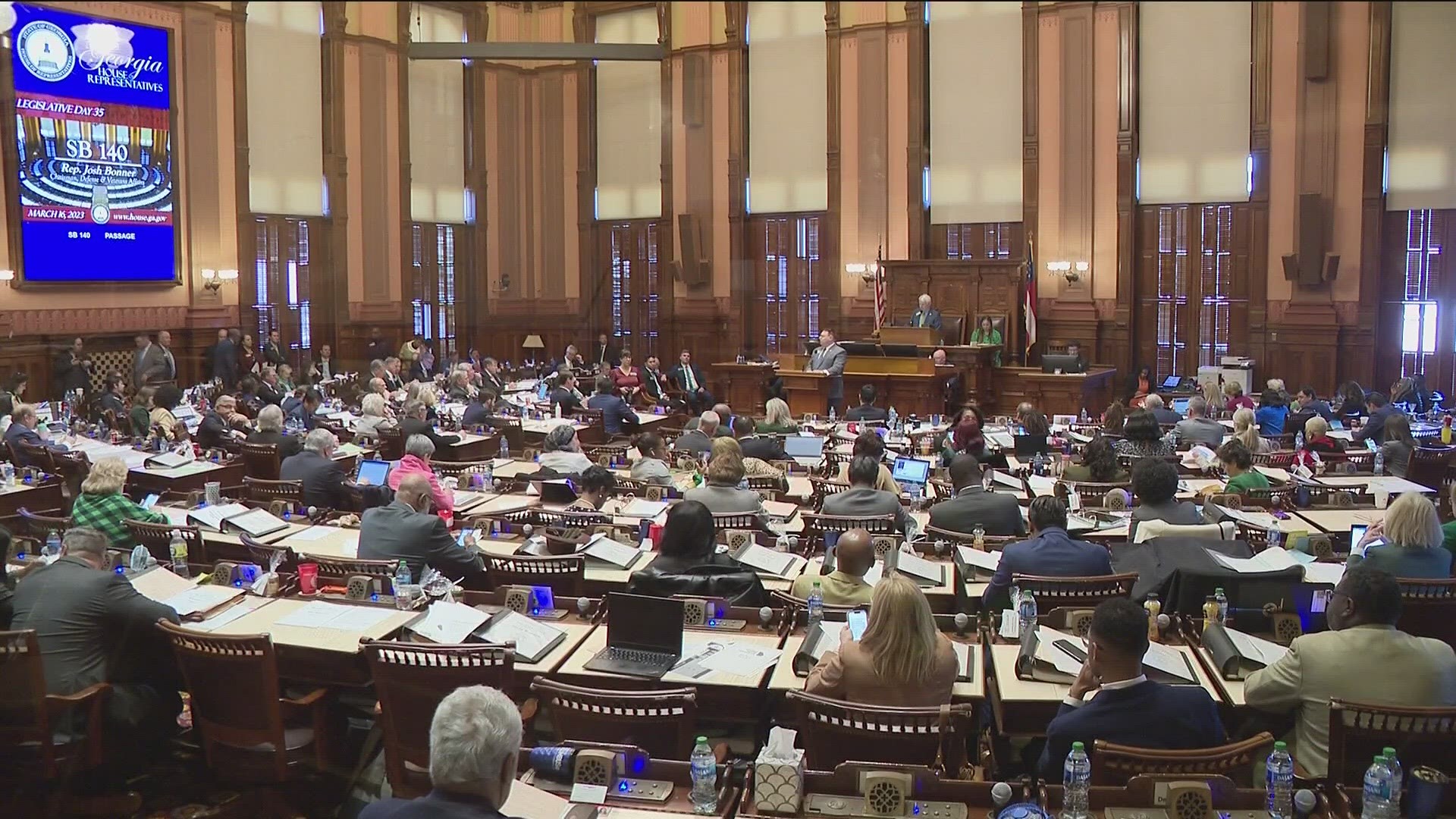ATLANTA — A suit against Georgia's new law that bans most gender affirming care for minors will get an initial hearing in federal court on Wednesday.
The law took effect last weekend, on July 1. It bans gender reassignment surgery and hormone therapy for minors, while still allowing for the use of puberty blockers.
A lawsuit was filed in advance of the law taking effect by parents of transgender children and an advocacy group, TransParent.
The suit argues their rights are being violated in that they cannot make decisions about their children's health care.
The families and TransParent are asking for Georgia's court to rule that the ban violates federal law; specifically, it points out the due process and equal protection clauses in the Fourteen Amendment of the U.S. Constitution.
The law, SB 140, "strips parents of their rights to make critical decisions about their child’s health care" the Southern Poverty Law Center said in a statement.
The SPLC and other groups, including the ACLU of Georgia and Human Rights Campaign Foundation, are representing the parents in the suit.
Several states have had laws banning gender affirming procedures for minors struck down by federal judges, including one in Arkansas in late June.
Georgia's law, the SPLC argues, is "unique" though in that it "bans one aspect of the medication treatment for gender dysphoria — hormone therapy — while allowing the provision of puberty blockers — even though they go hand-in-hand as part of the full complement of appropriate medical care."
"Puberty blockers are a short-term treatment that function as a bridge to the next decision point for parents, youth and their doctor," the SPLC statement said. "Allowing transgender adolescents the use of puberty blockers while banning them from receiving hormonal care is constructing 'a bridge to nowhere' for these youth."
The judge in the Arkansas case ruled that state's law violated the equal protection and due process clauses, and additionally violates the First Amendment rights of medical providers.
The hearing in federal court in Atlanta on Monday will be just a first step in this legal case. An order prepared on Monday by U.S. District Judge Sarah E. Geraghty said that no defendants had yet appeared in the case and it would be "prudent to limit the issues to be addressed at the hearing."
"Accordingly, the July 5 hearing will be limited to discussion of logistical matters concerning the TRO/preliminary injunction motion, including the setting of a forthcoming evidentiary hearing, and the length, substance, and timing of the same," the order setting Wednesday's hearing states.
It's not clear if Judge Geraghty could still consider an option such as a temporary block of the law in advance of further hearings.

